UKCCS
Type of resources
Available actions
Topics
Keywords
Contact for the resource
Provided by
Years
Formats
Representation types
Update frequencies
Scale
Resolution
-
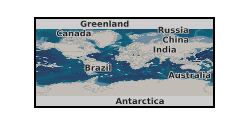
This poster on the UKCCSRC (UK Carbon Capture and Storage Research Centre) Call 1 project, Multi-Phase Flow Modelling for Hazardous Assessment, was presented at the Cambridge Biannual, 02.04.14. Grant number: UKCCSRC-C1-07.
-
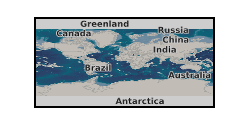
The inherent nature of electricity necessitates a permanent balance between generation and demand in electricity systems. This has obvious implications for the operation of CCS power plants in decarbonised electricity systems with inflexible nuclear and variable renewable supply. The low variable costs of nuclear and some intermittent renewable technology allow them to run as base-load generators and shift fossil fuel plants from base-load to midmerit plants. CCS power plants can be expected to increasingly operate in ways to balance variations, sometimes simultaneously, in the production of some intermittent renewable technologies and variations in electricity demand, resulting in more frequent ramping and start/stop cycles. As a result, they may also operate over a wide output range to maintain the quality and security of electricity supply by providing ancillary services, e.g. capacity and energy reserve, to the electricity network. This work characterises the operating envelope, the performance and the corresponding compressed CO2 flow of coal power plants for a range of loads, with or without voluntary by-pass of the capture unit. Optimised part-load operating strategies provide novel insights into the additional capabilities of CCS power plants specifically designed for enhanced operating flexibility. The paper is available at http://www.sciencedirect.com/science/article/pii/S1876610214026010, DOI: doi:10.1016/j.egypro.2014.11.786.
-
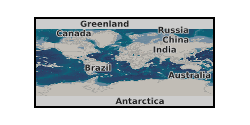
This project will tackle one of the key technical challenges facing the development of commercially viable CO2 transport networks: modelling the phase behaviour of impure carbon dioxide, under the conditions typically found in carbon capture from power stations, and in high-pressure (liquid phase) and low-pressure (gas phase) pipelines. Models for phase behaviour are known as equations of state (EoS). EoS vary in their mathematical form, accuracy, region of validity and computational complexity. Because different applications have different requirements, there is no single EoS that is ideal for all applications. This project will use cutting-edge computer algorithms to automatically reparameterise EoS for CCS modelling. This flexible technique will allow a user to specify their requirements and re-derive model parameters matched to their needs. Our algorithms will directly produce functional forms for EoS from experimental data, thus fully automating the derivation of EoS. This will enable users to rapidly produce bespoke EoS that are tailored to their particular application, and will enable these models to continually evolve as new measurements become available, ensuring that experimental advances are rapidly converted into improved CCS modelling and, ultimately, better performance and efficiency of real CCS processes. Grant number: UKCCSRC-C1-22.
-
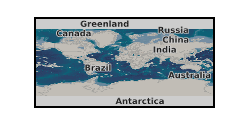
This is a blog (Final, 18.11.14) on the UKCCSRC (UK Carbon Capture and Storage Research Centre) Call 1 project, Multi-Phase Flow Modelling for Hazardous Assessment. Grant number: UKCCSRC-C1-07.
-
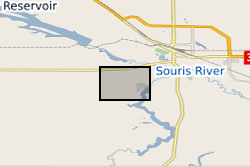
This data set includes microseismic and structural geological data collected at Aquistore (Canada). They cover a period from 26th April - 21st June 2015, during which CO2 was being injected in the Aquistore injection well at 3.5 km depth. The data were collected in the framework of a research project funded by UKCCSRC (EPSRC) and based at Aquistore in order to identify whether any microseismic events, that could be related to the CO2 injection, took place during this period and use of these events to image potential flowpathways at depth. The data were collected at a sampling rate of 1000Hz using a short-period microseismic array with a 25m aperture, consisting of one three-component and three one-component sensors (Lennartz, MKIII and MKII lite). The array was placed at 50cm depth, approximately 150m away from the injection well. Acquisition was continuous during the above period. The microseismic data are available in PASCAL or ASCII format. Full details on equipment used in data collection and data formats are available in the README file. Due to commercial constraints this dataset is currently under embargo until the end of 2017. Due to the large size of the dataset additional information and access requirements can be requested via the contact email supplied.
-
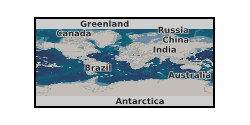
This poster on the UKCCSRC Call 1 project, Nano-seismic mapping at Aquistore, was presented at the Cranfield Biannual, 21.04.15. Grant number: UKCCSRC-C1-19.
-
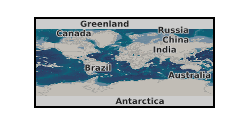
This presentation on the UKCCSRC (UK Carbon Capture and Storage Research Centre) Call 1 project, Multi-Phase Flow Modelling for Hazardous Assessment, was presented at the Cranfield Biannual, 22.04.15. Grant number: UKCCSRC-C1-07.
-
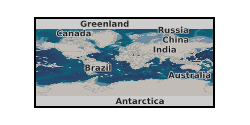
This poster on the UKCCSRC Call 1 project, Determination of water Solubility in CO2 Mixtures, was presented at the Cranfield Biannual, 21.04.15. Grant number: UKCCSRC-C1-21.
-
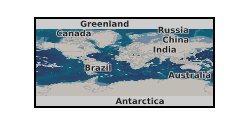
The project will three-dimensionally image hydraulically conductive features in the reservoir, caprock and overburden of an active CO2 injection site: the Aquistore site, Canada. Our research will provide important information on potential migration pathways within the storage complex to inform future monitoring strategies at the Aquistore site and at future storage sites. We will monitor micro-seismic events prior to, and during, CO2 injection using a three-component nanoseismic surface monitoring array which will complement data collected by the existing geophone network at the site. This analysis can be used to provide deep focussed monitoring information on permeability enhancement near the injection point. As injection continues it will also enable imaging of any flowing features within the caprock. Grant number: UKCCSRC-C1-19.
-
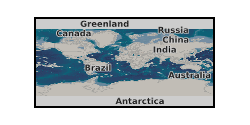
CO2 equation of state software from UKCCSRC project: Tractable equations of state for CO2 mixtures in CCS: Algorithms for automated generation and optimisation, tailored to end-users and tutorial presentation to support equation of state software. Grant number: UKCCSRC-C1-22.
 NERC Data Catalogue Service
NERC Data Catalogue Service